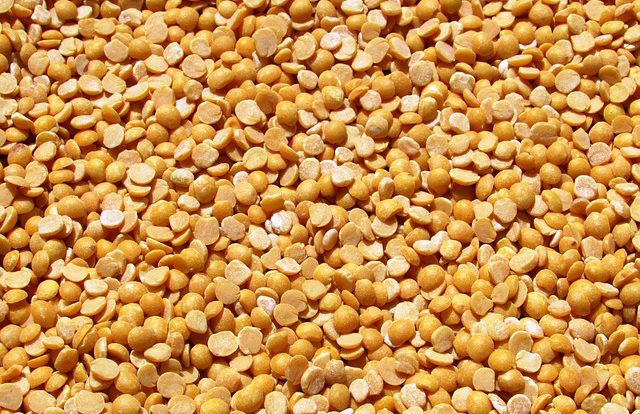PURIS Proteins, a cultivator of organic, non-GMO, U.S.-sourced plant-based ingredients and foods, as well as the largest pea protein producer in North America, has raised a $12.5 million Series D round of funding from a single undisclosed investor, according to a filing with the Securities and Exchange Commission (SEC).
This funding has been secured only six months after Cargill made an undisclosed investment in the company in January of this year; creating a joint venture with PURIS to accelerate the production of plant-based foods.
Founded in 1985 in Iowa, family-owned PURIS Proteins specializes in pea proteins, starches, and fibers, according to Twin Cities Business, and also produces protein bars, beverages, and baked goods.
“PURIS is a game changer in terms of taste and vertical integration in pea protein,” said David Henstrom, vice president, Cargill Starches, Sweeteners and Texturizers, in January of this year. “Cargill is excited to expand into the emerging pea protein space while continuing to support our conventional agricultural crops. It’s clear that PURIS is in alignment with Cargill’s vision to meet the growing demand for protein globally and to help customers deliver label-friendly products without sacrificing taste.”
Queen Pea
In the overall alternative protein category, pea protein has rapidly gained popularity. Extracted from ground yellow split peas, unlike soy or whey, pea protein is not a allergen, is non-GMO, is gluten-free, vegan, kosher, and is comparatively more environmentally friendly than other protein sources. Pea protein is also cholesterol-free, helps control blood pressure, provides a feeling of satiety, and is an effective source of protein for muscle building.
Given this list of benefits, the number of companies integrating pea protein into their products has soared by 195 percent between 2013 and 2016, reports Food Dive.
Under the structure of the joint venture between Cargill and PURIS, PURIS’ plans to establish a second production site in the U.S., according to Food Navigator, which will in turn enable the company to grow into being a global supplier.
Seeing Green in Plants
Global protein consumption is expected to climb at a compounded annual growth rate (CAGR) of 1.7 percent, reaching 943 million tons by 2054, according to Lux Research. Over this same time period, alternative protein sources are forecast to command up to a third of the protein market as they fill the void created by slowing growth in meat and seafood production, and demand shifts within the consumer market.
Cargill’s tie-in with PURIS is one of the company’s latest moves to capture growth through the plant protein channel.
Throughout 2016 and 2017, Cargill sold off its U.S. feedyards – selling its sites in Bovina and Dalhart, Texas, to Friona Industries in July 2016, and then selling its feedyards in Leoti, Kansas, and Yuma, Colorado to Green Plains Inc. in May 2017.
At the time, John Keating, president of Cargill’s Wichita-based protein business operations and supply chain, said, “We are committed to being the leading protein provider that nourishes people, animals and the planet in a safe, responsible and sustainable way while exceeding the expectations of our customers.”
This pivot toward greater sustainability and plant-based food systems continued in July 2017 when Cargill announced it had entered into a strategic partnership with Austria-based Delacon – the pioneering global leader in phytogenic (plant-based) feed additives – through an unspecified minority equity investment.
Driven by shifting consumer preferences, and a heightened awareness on the part of consumers regarding how livestock are raised and what they are fed, through the tie-up, the two companies are aiming to advance the market presence of natural, plant-based feed additives on the global market.
One month later, in August 2017, Cargill announced its participation in a $17 million Series A for Memphis Meats, a San Francisco-based startup that is developing methods for growing clean meat from animal cells without the need for breeding, raising, or the slaughtering animals.
All of these strategic moves point toward Cargill’s goal of meeting consumers’ desire for alternative sources of protein that offer exceptional taste and transparent labels – something that PURIS is well positioned to facilitate.
-Lynda Kiernan

